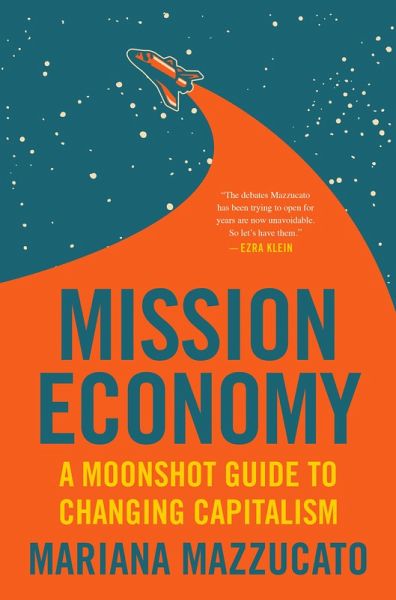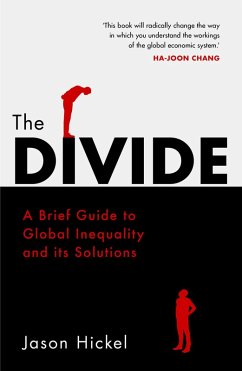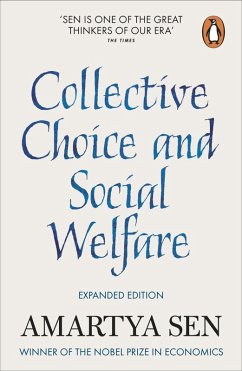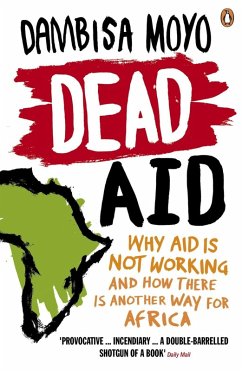
Mission Economy (eBook, ePUB)
A Moonshot Guide to Changing Capitalism

PAYBACK Punkte
0 °P sammeln!
Longlisted for the 2021 Porchlight Business Book Awards, Big Ideas & New PerspectivesShe offers something both broad and scarce: a compelling new story about how to create a desirable future.New York Times An award-winning author and leading international economist delivers a hard-hitting and much needed critique of modern capitalism in which she argues that, to solve the massive crises facing us, we must be innovativewe must use collaborative, mission-oriented thinking while also bringing a stakeholder view of public private partnerships which means not only taking risks together but also sha...
Longlisted for the 2021 Porchlight Business Book Awards, Big Ideas & New Perspectives
She offers something both broad and scarce: a compelling new story about how to create a desirable future.New York Times
An award-winning author and leading international economist delivers a hard-hitting and much needed critique of modern capitalism in which she argues that, to solve the massive crises facing us, we must be innovativewe must use collaborative, mission-oriented thinking while also bringing a stakeholder view of public private partnerships which means not only taking risks together but also sharing the rewards.
Capitalism is in crisis. The rich have gotten richerthe 1 percent, those with more than $1 million, own 44 percent of the world's wealthwhile climate change is transformingand in some cases wiping outlife on the planet. We are plagued by crises threatening our lives, and this situation is unsustainable. But how do we fix these problems decades in the making?
Mission Economy looks at the grand challenges facing us in a radically new way. Global warming, pollution, dementia, obesity, gun violence, mobilitythese environmental, health, and social dilemmas are huge, complex, and have no simple solutions. Mariana Mazzucato argues we need to think bigger and mobilize our resources in a way that is as bold as inspirational as the moon landingthis time to the most 'wicked' social problems of our time.. We can only begin to find answers if we fundamentally restructure capitalism to make it inclusive, sustainable, and driven by innovation that tackles concrete problems from the digital divide, to health pandemics, to our polluted cities. That means changing government tools and culture, creating new markers of corporate governance, and ensuring that corporations, society, and the government coalesce to share a common goal.
We did it to go to the moon. We can do it again to fix our problems and improve the lives of every one of us. We simply can no longer afford not to.
She offers something both broad and scarce: a compelling new story about how to create a desirable future.New York Times
An award-winning author and leading international economist delivers a hard-hitting and much needed critique of modern capitalism in which she argues that, to solve the massive crises facing us, we must be innovativewe must use collaborative, mission-oriented thinking while also bringing a stakeholder view of public private partnerships which means not only taking risks together but also sharing the rewards.
Capitalism is in crisis. The rich have gotten richerthe 1 percent, those with more than $1 million, own 44 percent of the world's wealthwhile climate change is transformingand in some cases wiping outlife on the planet. We are plagued by crises threatening our lives, and this situation is unsustainable. But how do we fix these problems decades in the making?
Mission Economy looks at the grand challenges facing us in a radically new way. Global warming, pollution, dementia, obesity, gun violence, mobilitythese environmental, health, and social dilemmas are huge, complex, and have no simple solutions. Mariana Mazzucato argues we need to think bigger and mobilize our resources in a way that is as bold as inspirational as the moon landingthis time to the most 'wicked' social problems of our time.. We can only begin to find answers if we fundamentally restructure capitalism to make it inclusive, sustainable, and driven by innovation that tackles concrete problems from the digital divide, to health pandemics, to our polluted cities. That means changing government tools and culture, creating new markers of corporate governance, and ensuring that corporations, society, and the government coalesce to share a common goal.
We did it to go to the moon. We can do it again to fix our problems and improve the lives of every one of us. We simply can no longer afford not to.
Dieser Download kann aus rechtlichen Gründen nur mit Rechnungsadresse in A, B, BG, CZ, D, DK, EW, E, FIN, F, GR, HR, H, I, LT, L, LR, NL, PL, P, R, S, SLO, SK ausgeliefert werden.













